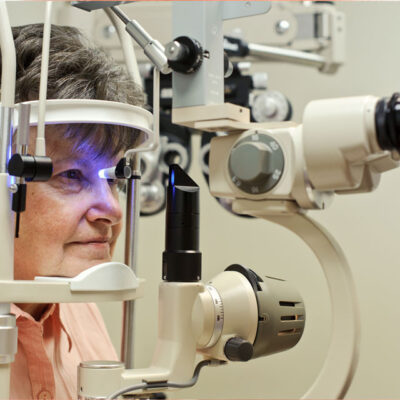Oh I would recommend him in a heartbeat, he does a good job, he's gentle, he explains everything to you, his bedside manner is great. He cares! ♥

Glaucoma (sounds like: glaa·kow·muh) is an eye condition. It is when the optic nerve is damaged due to pressure in the eye. Glaucoma is an alarming eye condition. The first reason is because most types of glaucoma are painless and without a professional eye exams escapes detection. Glaucoma is referred to as the silent thief of sight.
Second, this silent thief of sight (glaucoma) is one of the nationwide leading causes of irreversible blindness.

Glaucoma can sometimes be treated successfully with medications to lower the pressure in the eye. If medications are not effective, laser and other surgical procedures may be of value in controlling the pressure and preventing further vision loss.
Both medications and surgery are designed to do one of two things:
At this time there is no known treatment to cure glaucoma. However, with careful monitoring, and treatment many individuals can stop the progression and increase sight loss. The standard of care is to monitor the patient at least every three months. However, Dr. Affleck may visit with you more or less depending on your individual situation.
Non-invasive treatment is using medication drops. According to the National Eye Institute most people don’t have problems with glaucoma medicines. But there’s a small chance that you could develop:
Notify Dr. Affleck if you notice any side effects, many times a medication can be changed.
A treatment to help control glaucoma is laser surgery. You may need it if your glaucoma medicines are not helping to keep your eye pressure low enough. You may also have it as a first treatment of glaucoma. Laser surgery uses a tiny, powerful light beam to help your eye drain fluid more easily. By making holes or shrinking clogged areas of the eye, laser surgery can help decrease your eye pressure. Glaucoma laser surgery is done at our office. One or both eyes may.
Dr. Affleck may also suggest surgery. There are several different types of surgery Dr. Affleck can preform. Dr. Affleck will work with you on your treatment plan to help protect your vision. For more information on the different types of glaucoma surgery visit the National Eye institute or click here.
Glaucoma is nicknamed the silent thief of sight because there may be no symptoms until it is too late.
Early detection is vital. Be aware if you are at risk, and follow Dr. Affleck’s examination time table. During an exam with Dr. Affleck the measurement of your eye pressure will be taken. If you have high pressure but no other signs of glaucoma he might ask for at least a yearly dilated exam.
You are at a higher risk of developing glaucoma if you are
Other Risk Factors are eye conditions like
“Courtesy: National Eye Institute, National Institutes of Health (NEI/NIH).”
Click Here for Complete Disclosure Information
Glaucoma can effect both or just one eye. According the the Glaucoma Research Foundations;
Primary open angle glaucoma generally affects both eyes, but does not always develop at the same time.
One eye may have moderate or advanced glaucomatous damage, while the other eye has very little or none. This variation in the extent of the damage can cause confusion, and the mistaken perception that only one eye is involved.
In time, most patients will develop glaucoma in both eyes. Acute angle-closure glaucoma may also initially occur in only one eye, but there is a 40 to 80% chance that the other eye will develop angle closure over a 5 to 10 year period. For this reason, your doctor may decide to treat the unaffected eye to prevent an angle closure attack.
Some types of glaucoma such as secondary glaucoma caused by injury to the eye, usually affect one eye. Secondary glaucomas such as Fuch’s syndrome, pseudoexfoliation syndrome and iridocorneal endothelial (ICE) syndrome occur in only one eye a majority of the time, but can be bilateral.
Eye pressure also known as intraocular pressure (IOP) is created because the eye continually renews the eye fluid creating pressure in the eye. The fluid should drain freely and produce correct levels of fluid to keep the eye pressure consistent. The normal pressure is between 10-20 mm HG.
If the pressure is too high, but the the optic nerve shows no damage then you may be a suspect for glaucoma. You may be diagnosed with ocular hypertension. An exam with Dr. Affleck can help find answers and learn more about glaucoma. It all starts with an exam. Call us today!
No, there are four types:
To learn More about the types of glaucoma visit the National Library of Medicine or Click here